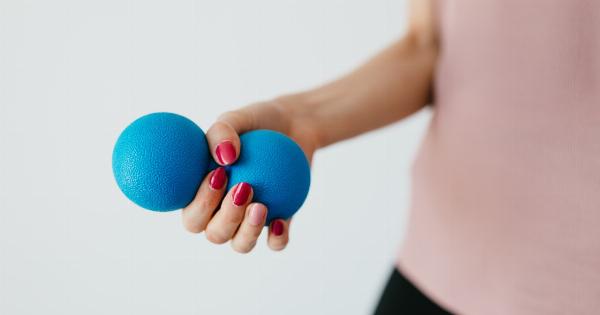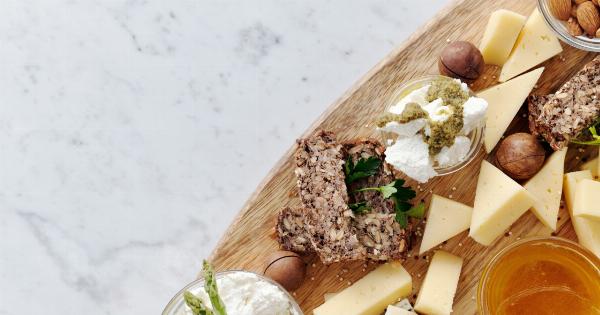Sleep is essential for our physical and mental health. But with our busy schedules and technology distractions, getting a good night’s sleep can be challenging.
While a good sleep routine and sleep environment are important, choosing the right foods can also improve the quality of your sleep. Here are some foods that can help you get a good night’s sleep:.
1. Warm milk
Warm milk has been a traditional remedy for insomnia for generations. Milk contains tryptophan, an amino acid that can promote sleep by increasing the production of serotonin and melatonin in the brain.
Additionally, the warmth and comfort of the milk can have a soothing effect on the mind and body. You can also add a dash of cinnamon or honey to your warm milk to make it more enjoyable.
2. Bananas
Bananas are a good source of magnesium, potassium, and vitamin B6, which can help promote relaxation and reduce stress and anxiety. They also contain tryptophan and carbohydrates that can aid in the production of serotonin and melatonin.
You can have a banana as a snack or add it to a smoothie or oatmeal.
3. Almonds
Almonds are rich in magnesium, which can help relax the muscles and calm the nervous system. They also contain protein and healthy fats that can prevent dips in blood sugar levels that can disrupt sleep.
However, be mindful of the portion size as almonds are also calorie-dense. A handful of almonds as a snack or added to a salad can be a healthy way to improve your sleep.
4. Chamomile tea
Chamomile tea has been used for centuries as a natural remedy for insomnia and anxiety. Chamomile contains flavonoids and terpenoids that have a calming effect on the brain and can improve sleep quality.
Drinking a cup of chamomile tea before bedtime can also be a relaxing ritual that can signal your body to wind down for sleep.
5. Kiwi
Kiwi is a low-calorie fruit that is rich in nutrients, including vitamin C, potassium, and fiber. Research has also shown that eating kiwi can improve sleep quality and duration.
Kiwi contains antioxidants and serotonin that can regulate the sleep-wake cycle and promote deeper sleep. You can have a kiwi as a snack or add it to a fruit salad or smoothie.
6. Tart cherries
Tart cherries are rich in melatonin, a hormone that regulates the sleep-wake cycle and promotes sleep. Researchers have found that drinking tart cherry juice can increase sleep time and efficiency in adults with insomnia.
Tart cherries also contain antioxidants and anti-inflammatory compounds that can improve overall health. However, be mindful of the added sugar in some cherry juice products. Fresh or frozen tart cherries can also be added to a smoothie or oatmeal.
7. Whole grains
Whole grains, such as oats, quinoa, and brown rice, are complex carbohydrates that can regulate blood sugar levels and promote stable energy throughout the day.
Eating whole grains can also increase the production of tryptophan and serotonin in the brain, which can improve sleep quality. You can have a whole-grain snack, such as popcorn or rice cakes, or incorporate whole grains into your meals, such as a quinoa bowl or brown rice stir-fry.
8. Turkey
Turkey is a good source of tryptophan, an amino acid that can increase the production of serotonin and melatonin in the brain. However, be mindful of the portion size and cooking method as high-fat and fried turkey can disrupt sleep.
Lean turkey breast can be added to a salad or sandwich as a healthy source of protein.
9. Dark chocolate
Dark chocolate contains magnesium, which can help relax the muscles and calm the nervous system. It also contains antioxidants and flavonoids that can improve cardiovascular health and reduce stress.
However, be mindful of the portion size and the level of caffeine as high amounts of caffeine can disrupt sleep. Aim for dark chocolate with at least 70% cocoa and have a square as a snack or add it to a smoothie or yogurt.
10. Herbal supplements
Herbal supplements, such as valerian root, passionflower, and lavender, have been used for centuries as natural remedies for insomnia and anxiety. These supplements can have a calming effect on the nervous system and promote relaxation and sleep.
However, be mindful of the dosage and consult with a healthcare professional before taking any supplements.
In conclusion, incorporating these foods into your diet can help improve the quality of your sleep by promoting relaxation, regulating blood sugar levels, and increasing the production of sleep-promoting hormones.
However, keep in mind that dietary changes alone may not be enough to improve sleep and that a good sleep routine and environment are also important for a good night’s sleep.


























